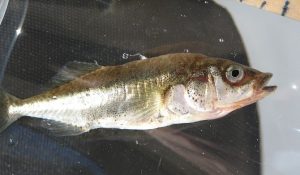Investigation probing how rising water temperatures affect endangered fish species

SCCWRP and its partners have launched an 18-month investigation to methodically probe how the health of an endangered fish species is affected by increases in water temperatures – granular insights that will help advance scientific understanding of how human-induced changes to stream temperature may be stressing aquatic ecosystems.
The investigation, which wrapped up its first phase in December, is quantifying the biological effects of rising water temperatures on a fish known as the threespine stickleback, including the fish’s critical thermal maximum. Such granular insights historically have not existed for almost any temperature-sensitive aquatic species in Southern California – a shortcoming that has forced researchers to rely on less precise statistical analyses for estimating thermal tolerances.
The partially armored threespine stickleback is being used during the investigation as an analogue for the endangered unarmored threespine stickleback.
In the short term, the thermal tolerance data will be used to support an ongoing study examining how treated wastewater discharges in the upper Santa Clara River watershed may be affecting the health of vulnerable aquatic life. Treated wastewater effluent is typically discharged into streams above the stream’s ambient temperature.
More broadly, the thermal tolerance study represents an important step forward in researchers’ efforts to model how the health of Southern California aquatic ecosystems could be affected by rising water temperatures triggered by climate change and other stressors.
More news related to: Ecohydrology